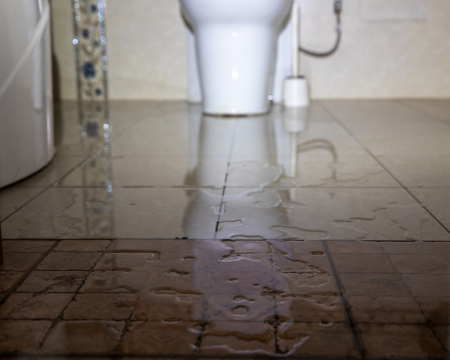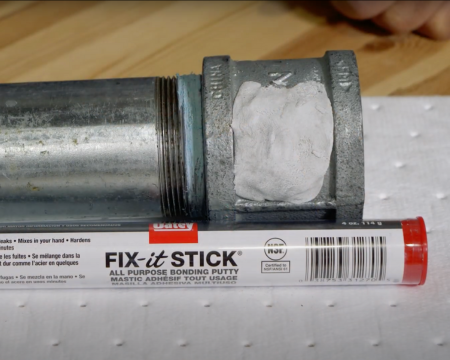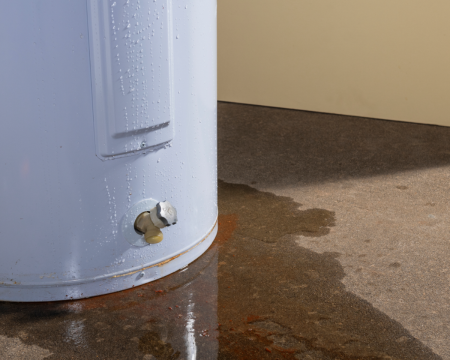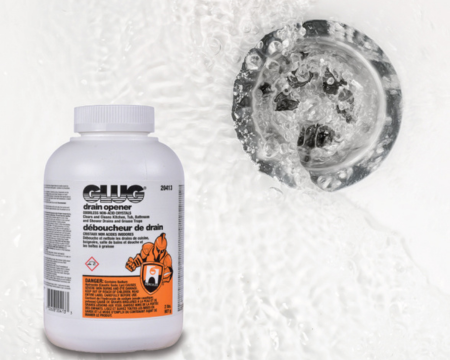Plumbing emergencies are a significant and often costly inconvenience for any homeowner. They always seem to happen at the worst possible time. You might hear suspicious noises in the middle of the night, feel the shock of icy-cold water in your morning shower, or return from a weekend trip to discover an expanding puddle of water on the floor.
What are the most common plumbing emergencies? Even if you’re unfamiliar with these emergencies, it is important to recognize signs of plumbing problems and master a few quick fixes to alleviate damage.
This guide will show you how to recognize and handle the four most common plumbing emergencies, including expert tips on when to call a professional before things go dire.
1. Backed-up Toilet
The toilet is the most essential plumbing fixture in your home. However, it can also be frustrating to handle when it suddenly stops working. Luckily, there are simple methods to alleviate a backed-up toilet.
What to Do When Your Toilet Overflows
If you are dealing with a blockage, locate the shut-off valve on the toilet: typically a small knob behind or beside the toilet near the floor. Turn the valve clockwise to cut the water supply.
Once the water supply is off, it should be safe enough to use a plunger to eliminate the clog. Be sure there is enough water in the bowl, so the plunger head can have a solid seal. If that doesn’t work, try an auger (plumbing snake) to break up or pull out deeper blockages.
If neither option works, let the toilet sit for a few hours so that whatever is preventing it from draining softens or disintegrates into the water.
Pro Tip: To avoid potential clogs, flush only toilet paper—no sanitary products, paper towels, or wet wipes. These products, specifically flushable wipes, are not biodegradable, which means they take longer to degrade and can cause toilet blockages.
When to call a plumber: If you have exhausted all options for removing the blockage from the toilet bowl, call a professional. The blockage is most likely too far down the drainage line, and a licensed plumber will have the professional tools and skills to remove it.

2. Burst Pipes
Burst pipes are one of the most damaging—and, therefore, most costly—plumbing emergencies a homeowner can face, as pipes are all around our homes and can severely damage their integrity.
One of the first ways to tell if your pipes are in trouble is to look for a puddle of water. Significant leakage around an exposed pipe can indicate that the pipe is corroded or was not sealed properly.
Other “red flags” include hearing abnormal noises from the pipe, experiencing decreased water pressure, or having a higher-than-usual utility bill.
How to Fix a Burst Pipe
When you see water pooling, locate the main shut-off valve. Turn it off immediately.
Once you stop the pipe from leaking, it will be easier to temporarily patch it using a product like Oatey® Fix-It Repair Stick All-Purpose Bonding Epoxy Putty. This putty can fix the leak until a more permanent repair is possible.
Read more here to learn how to use this product and perform an emergency repair on a leaky pipe.
When to call a plumber: If you suspect your pipes have burst and don’t have the necessary materials, you will want to call a professional as soon as possible to fix the problem. The last thing you want is to have a flooded home.

3. Water Heater Malfunctions
Too often, we take the reliability of our homes’ water heating systems for granted. We just expect ample supplies of hot water to be right there when we need it.
Imagine turning on the shower and hopping prepared into an ice-cold stream. If the water temperature fails to rise within the customary waiting period, chances are the culprit is a water heater malfunction, caused by a tank leak or a fuel issue (gas or electric, depending on your water heater).
Pro Tip: Inspect your water heater periodically. Flush it at least once a year to purge performance and efficiency-killing mineral buildup from the bottom of the unit’s interior storage tank. This buildup is a water heater’s enemy, eating through the tank from the inside out. Regular maintenance can minimize the likelihood of breakdowns, ensuring you enjoy hot running water every day for many years.
When to call a plumber: Water heater problems are generally beyond the capabilities of even the most skilled do-it-yourselfer. We recommend calling a plumber immediately to diagnose and repair the problem.

4. Clogged Shower Drain or Bathtub Drain
Chances are, you know all about clogged shower drains and the unpleasant sensation of soapy, lukewarm water pooling beneath your feet. These clogs are typically due to hair, soap scum, and other debris. To mitigate their frequency, install a shower drain with a built-in hair catcher.
Pro Tip: If your shower or bathtub drain is severely clogged, try a drain cleaning product like Hercules® Glug® Crystals Drain Opener. This product uses powerful crystalline flakes to quickly clear sluggish drains and dissolve hair, soap, other organic material, and grease clogs. For ongoing maintenance, consider using it a couple of times a year, especially after a clog has occurred, to help prevent future blockages and keep your drains flowing smoothly.
When to call a plumber: If the clogs continue to accumulate even after cleaning the drains, call a professional plumber to investigate the issue.
To learn more about how to unclog a shower drain, check out this guide.

Plumbing emergencies are annoying and costly if not managed properly. These few at-home solutions should help you avoid these disruptions in your life. Meanwhile, regular maintenance can go a long way toward preventing plumbing problems. If you are in a plumbing emergency, don’t hesitate to call a local professional for help.
Frequently Asked Questions
-
What should be the first thing I do when I see a plumbing emergency?
-
The first step is to shut off the water supply. Every major appliance—toilets, water heaters, washing machines, etc.—will have a shut-off valve. If you can’t locate this valve quickly, shut off the home’s main water valve. This stops the immediate flow of water, allows you to take a breather, assess the situation, or call for professional help.
-
-
How do I know if I’m dealing with a plumbing emergency or a minor issue?
-
You should be able to assess whether your plumbing fixture has a major or minor issue. For example, if the problem risks water damage, disrupts essential systems (toilets or water heaters), or worsens despite the quick fixes suggested here, a professional should address it immediately.
-
-
How often should I maintain my plumbing to avoid emergencies?
-
If you perform routine checks on your plumbing system at least once or twice a year, you should be able to avoid major emergencies. Flushing your water heater, checking for leaks around fixtures and pipes, and using drain guards to catch hair and debris will provide peace of mind. Preventive care is one of the most effective ways to avoid costly and inconvenient plumbing emergencies.
-